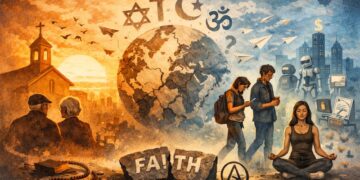By: Qazi Athar
The Constituent Assembly of India mandated its drafting committee to frame a constitution for the new born heterogeneous and geographically vast country. The drafting committee was headed by the renowned legal luminary Dr. B.R Ambedkar and after the completion of drafting, he moved a motion – ‘The Constitution as settled by the Assembly be passed’. The motion on Draft Constitution was declared as passed on November 26th 1949, and received the signatures of the members and the president. Out of a total 299 members of the Constituent Assembly, only 284 were actually present that day and signed the constitution, same date is also mentioned in the preamble of the constitution as the date on which the people of India through its Constituent Assembly ‘adopted, enacted and gave to themselves this constitution’
Since then the 26th of November each year is celebrated as the ‘Constitution Day’ across India. Universities, colleges, schools, bar councils / associations and other departments connected with law ceremoniously conduct seminars, workshops, organise lectures and debates to highlight the constitutional framework, its importance as a grand norm for governance of the country, and above all its operational supremacy. Enactment of constitution is portrayed as ‘big achievement’ maybe taking a larger than life leap in suggesting or indicating as if India was the sole country blessed to have a written constitution. While celebrations on any occasion cannot be denied to people, one may, however, humbly ask whether the enactment day is worth celebrating or not. This question can be put to rest by examining the constitution itself.
Now before examining it, let’s examine the Constituent Assembly of India whose prerogative was to provide a constitution to India.
Firstly the Constituent Assembly itself was not a representative body as all its members were not directly elected by the people of India on the basis of universal adult franchise thus putting a big question mark upon its legitimacy. It is also claimed that it was not a sovereign body as it was created by the proposal of imperial British government and its session was also held with their prior permission. Such claims potentially perforate its stature as a supreme body, and its potency to provide a constitution. Legally Constituent Assembly must be a sovereign body, if it’s not so, legal jurisprudence will surely hold such a body to be legally incompetent to frame the constitution.
The critics also say that the assembly was dominated by one particular party, it would not be unjust to call it as a Constituent Assembly of Congress party rather than of India. This is what prompted the British constitutional expert Granville Austin to remark that “The Constituent Assembly was a one party body in an essentially one party country. The assembly was the Congress and the Congress was the India” (Granville Austin, The Indian Constitution- Cornerstone of a Nation, Oxford, 1966, P. 8)
Now coming back to the constitution- it’s the lengthiest of all the written constitutions of the world while most of its provisions are borrowed from the constitutions of various other countries. However, quite surprisingly, Dr. B R Ambedkar ‘proudly’ proclaimed that the Indian constitution has been framed after ‘ransacking’ all the known constitutions of the world(Constituent Assembly Debates, Volume vii P. 35-38)
In modern language, the so called ransacking could genuinely be called as ‘sheer plagiarism’. No doubt for drafting a constitution one can examine other constitutions as well but outright ‘copy paste’ from other constitutions with little or no modification as what was done in this case can be justly called as a patchwork. Its structural part over which it rests or dictates pertaining to polity have been directly derived from the Government of India Act 1935 which was passed by British Parliament with an aim to consolidate its imperialistic structure in what they used to call ‘British India’.
The Fundamental rights and directive principles of state policy have been derived from American and Irish constitutions respectively. The political part (the principle of cabinet government and the relation between the executive and legislature ) have been largely drawn from the British Polity.
Constitution provides a confused system of governance, actually a biased Unitary system under the cloak of federalism, an examination of law making powers of the union and state can prompt any person of ordinary prudence to observe that states of Indian union has been reduced to the municipalities. The Emergency powers provided to union executive and the president are disastrous. They can proclaim it on certain grounds provided in the constitution without consulting the states and proceed to declare emergency and can vest itself with unbridled powers. It would not be insane to say that by restoring to emergency provisions which are inherently flawed constitutionally backed dictatorship is very much possible, this conclusion is not based on flimsy grounds but on solid grounds, for instance The union government can get a democratically elected government of any of its state dismissed on grounds if the president is satisfied that state cannot be carried on in accordance with the constitution or a state fails to comply with or to give effect to any directions from union.
Constitution gives tool to suppress an elected government of state by the hands of another elected government at union, notwithstanding both are democratically equal in status. Now can we celebrate something which is not original, purely indigenous and inherently flawed. How can British polity be suited for a heterogeneous country like India? No, it’s simply insane. Some amendments be done to meet the long pending demands of the people, most prominent among them is that power of the states should be enhanced and undue intervention from the union must be curtailed and kept confined to important issues like defence, foreign affairs etc.
The Author is a Lawyer and Writer based in Srinagar and can be reached at advocateqaziathar@gmail.com






